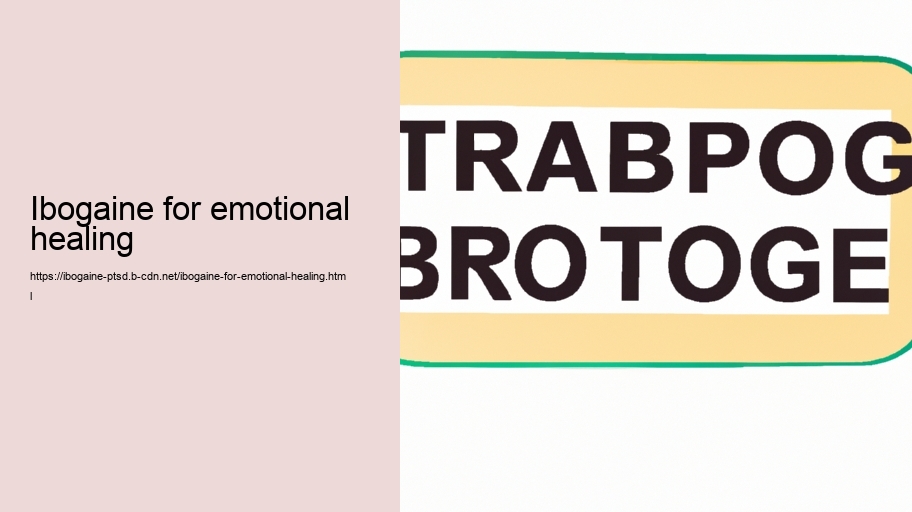Title: Ibogaine for Emotional Healing: A Journey to the Inner Self
Introduction:
In the realm of emotional healing, traditional therapies have dominated the landscape for decades. However, as our understanding of mental health evolves, alternative forms of treatment are emerging—among them is ibogaine. Derived from the root bark of the African shrub Tabernanthe iboga, ibogine is more than just a substance; it's a potential doorway to profound psychological transformation. In this essay, we will explore how ibogaine has been utilized for emotional healing and delve into both its promises and its complexities.
The Ibogaine Experience:
Ibogaine induces a psychoactive state that can last anywhere from 24 to 36 hours. During this time, individuals often experience vivid visions that can be akin to waking dreams. These experiences are described by many as introspective journeys that can bring repressed memories and emotions to the surface. For those struggling with emotional trauma or mental health issues like depression and anxiety, the ibogaine experience offers an opportunity for confrontation and reconciliation with their innermost struggles.
Many users report a sense of detachment during their journey, allowing them to observe their life experiences without the usual weight of emotional involvement. This objectivity can enable individuals to process past events in a way that fosters understanding and forgiveness—both towards themselves and others who may have caused them pain.
Mechanisms Behind Emotional Healing:
The precise mechanisms through which ibogaine facilitates emotional healing are not fully understood. However, research suggests that it acts on multiple neurotransmitter systems within the brain—including serotonin, dopamine, kappa-opioid receptors, and NMDA receptors—which play roles in mood regulation and neuroplasticity. By modulating these pathways, ibogaine appears to reset certain neural circuits associated with addiction behaviors and traumatic memories.
Moreover, because it is metabolized into noribogaine—a compound that lingers in the body longer than ibogain itself—it continues to influence these neurotransmitter systems well after the initial session ends. This prolonged effect might contribute to lasting changes in perspective and behavior observed among many who undergo treatment with ibogain.
Ethical Considerations:
Despite its potential benefits for emotional healing, ethical considerations cannot be ignored when discussing ibogain therapy. It remains illegal or highly regulated in many countries due to concerns about safety and potential misuse outside controlled settings.
Additionally, there's an imperative need for proper screening before administration since individuals with certain health conditions could face serious risks including cardiac complications from taking iboga-derived substances.
Furthermore, respecting cultural origins is crucial; indigenous people have used Tabernanthe iboga ceremonially for centuries—and any commercial exploitation should acknowledge and honor this traditional knowledge while ensuring sustainable harvesting practices.
Challenges Ahead:
While anecdotal evidence points toward positive outcomes related to personal growth following an encounter with Iboga’s psychoactive constituent—the scientific community remains cautious due largely in part because rigorous clinical trials are scarce but necessary steps toward validating such claims made by proponents of its therapeutic use.
Conclusion:
Iboga's active alkaloid holds intriguing possibilities for those seeking alternative paths toward mending psychic wounds inflicted by life’s tribulations—but also warrants careful consideration regarding appropriate usage contexts informed consent processes plus cultural sensitivities surrounding plant-based medicine origin stories.
As interdisciplinary research progresses alongside evolving societal narratives around mental wellness—we may find ourselves at precipice where ancient wisdom meets modern science unlocking new paradigms healing modalities rooted empathy compassion deep-seated respect human condition all complexity beauty vulnerability inherent within each individual’s search wholeness wellbeing.
